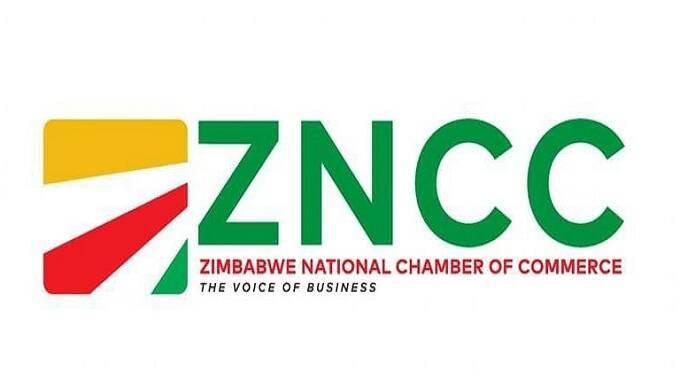News / National
Zimbabwe's cash reserves cannot cover a month
06 Dec 2024 at 18:10hrs |
0 Views

The Zimbabwe National Chamber of Commerce (ZNCC) has raised alarm over the country's dwindling foreign currency reserves, warning that the current US$540 million is insufficient to cover even a single month of imports, as the nation grapples with a ballooning import bill and restricted access to global credit lines.
In its latest industry and commerce report, the ZNCC highlighted the dire state of Zimbabwe's reserves, particularly in light of October 2024's import bill of US$835.8 million, which far exceeded the month's export earnings of US$698.1 million.
"Zimbabwe's current foreign exchange reserves, amounting to approximately US$540 million as of 31 October 2024, are far from sufficient to inspire confidence," the ZNCC stated. "This figure, though reportedly providing more than three times the reserve money cover, falls short of the country's import needs, raising serious concerns about the sustainability of foreign currency management and exchange rate stability."
Zimbabwe's foreign currency receipts reached US$10 billion in the first nine months of 2024, a 17.9% increase from the US$8.5 billion recorded during the same period in 2023. This improvement was attributed to stronger export receipts and diaspora remittances, which accounted for 59% and 25% of inflows respectively. However, the rising import bill has outpaced these gains, exposing vulnerabilities in the nation's trade balance.
The ZNCC also criticized the performance of Zimbabwe's gold-backed currency, introduced in April, which has faced rapid depreciation and contributed to exchange rate volatility.
"The policymakers' statements on an expedited de-dollarisation framework following the new currency's launch have further discouraged households and businesses from holding the ZiG for extended periods," the report noted.
The gold-backed currency, initially touted as a stabilizing measure, has instead fueled a preference for US dollars due to concerns rooted in past experiences with currency reforms, particularly the 2019 policy changes.
The chamber highlighted the economic strain on Zimbabweans, particularly those whose incomes are predominantly denominated in the Zimbabwe Gold currency (ZiG).
"Civil servants and private sector employees, while earning in ZiG, are compelled to pay for essentials such as transport, fuel, and groceries in US dollars, which are cheaper and more stable," the ZNCC stated.
As a result, many workers are turning to the parallel market to offload their ZiG earnings or leveraging rate differentials on the formal market. This practice exacerbates exchange rate volatility and undermines confidence in the local currency.
The ZNCC's warning underscores the challenges facing Zimbabwe's monetary policy as authorities attempt to balance the competing demands of fiscal stability and economic growth. The shortfall in reserves highlights the urgent need for structural reforms, enhanced export performance, and sustainable foreign currency management to avert a worsening crisis.
With the nation's debt standing at a staggering US$21 billion, Zimbabwe's economic recovery will depend on the government's ability to address these vulnerabilities while fostering investor confidence in its currency and financial systems.
In its latest industry and commerce report, the ZNCC highlighted the dire state of Zimbabwe's reserves, particularly in light of October 2024's import bill of US$835.8 million, which far exceeded the month's export earnings of US$698.1 million.
"Zimbabwe's current foreign exchange reserves, amounting to approximately US$540 million as of 31 October 2024, are far from sufficient to inspire confidence," the ZNCC stated. "This figure, though reportedly providing more than three times the reserve money cover, falls short of the country's import needs, raising serious concerns about the sustainability of foreign currency management and exchange rate stability."
Zimbabwe's foreign currency receipts reached US$10 billion in the first nine months of 2024, a 17.9% increase from the US$8.5 billion recorded during the same period in 2023. This improvement was attributed to stronger export receipts and diaspora remittances, which accounted for 59% and 25% of inflows respectively. However, the rising import bill has outpaced these gains, exposing vulnerabilities in the nation's trade balance.
The ZNCC also criticized the performance of Zimbabwe's gold-backed currency, introduced in April, which has faced rapid depreciation and contributed to exchange rate volatility.
"The policymakers' statements on an expedited de-dollarisation framework following the new currency's launch have further discouraged households and businesses from holding the ZiG for extended periods," the report noted.
The gold-backed currency, initially touted as a stabilizing measure, has instead fueled a preference for US dollars due to concerns rooted in past experiences with currency reforms, particularly the 2019 policy changes.
The chamber highlighted the economic strain on Zimbabweans, particularly those whose incomes are predominantly denominated in the Zimbabwe Gold currency (ZiG).
"Civil servants and private sector employees, while earning in ZiG, are compelled to pay for essentials such as transport, fuel, and groceries in US dollars, which are cheaper and more stable," the ZNCC stated.
As a result, many workers are turning to the parallel market to offload their ZiG earnings or leveraging rate differentials on the formal market. This practice exacerbates exchange rate volatility and undermines confidence in the local currency.
The ZNCC's warning underscores the challenges facing Zimbabwe's monetary policy as authorities attempt to balance the competing demands of fiscal stability and economic growth. The shortfall in reserves highlights the urgent need for structural reforms, enhanced export performance, and sustainable foreign currency management to avert a worsening crisis.
With the nation's debt standing at a staggering US$21 billion, Zimbabwe's economic recovery will depend on the government's ability to address these vulnerabilities while fostering investor confidence in its currency and financial systems.
Source - the independent
Join the discussion
Loading comments…































